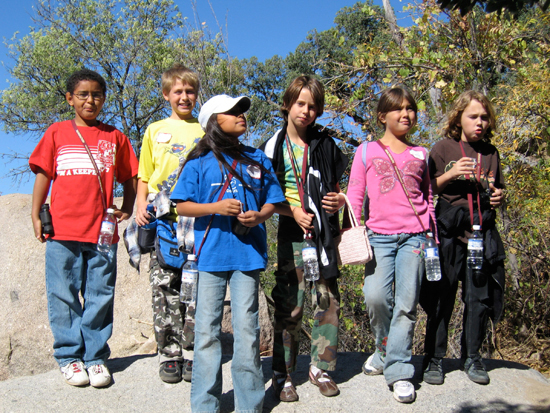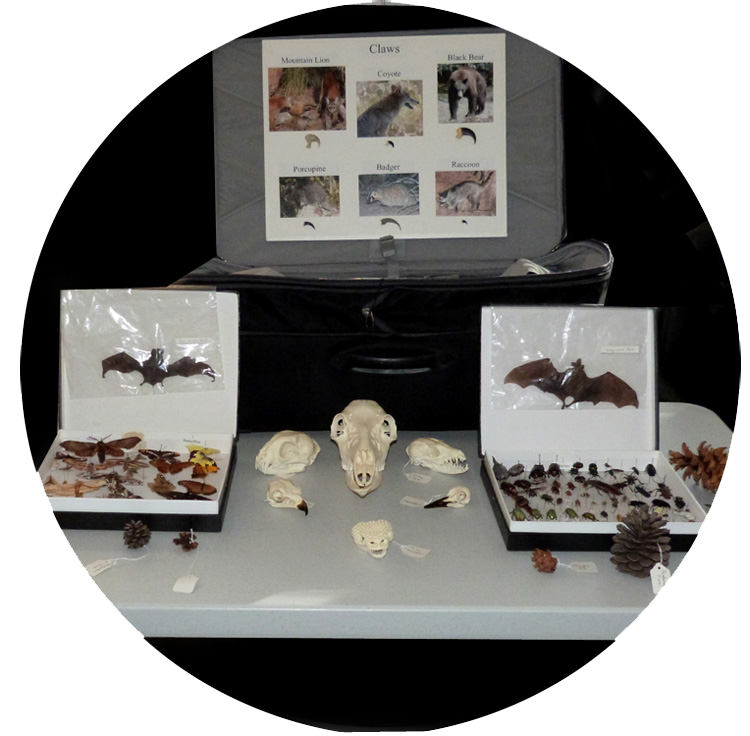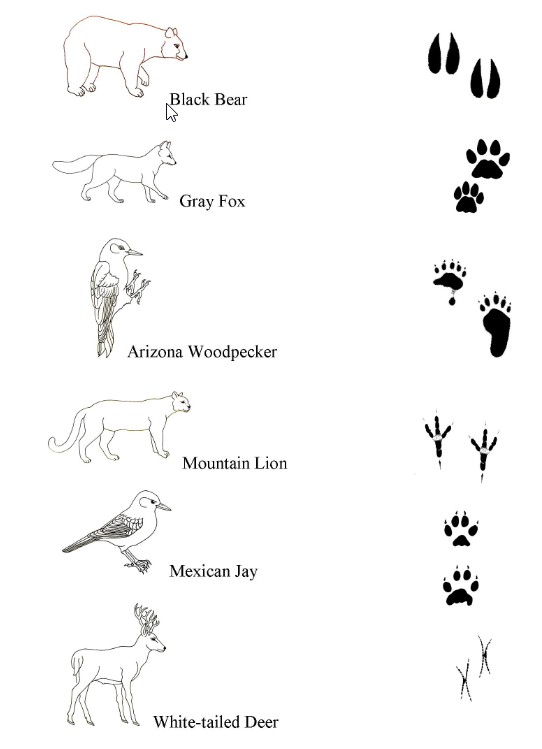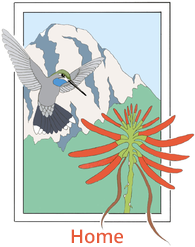Student Education

4th Grade School Nature Walks
The FoMC coordinates field trips for local schools to bring students to Madera Canyon. Students go outdoors into nature to directly experience, observe, and learn about the canyon. The FoMC Education Director administers the program, inviting local 4th grade teachers to schedule walks in the spring and fall. Volunteer docent naturalists, well-versed in Madera Canyon/Sky Island natural history — ecology, zoology, botany, geology, and archeology — lead students on the Proctor Accessible Nature Loop Trail in small groups. Madera Canyon nature walk field trips provide an opportunity for children who may have limited or no opportunity to spend time in the woods to experience and explore nature first-hand.
The Proctor Nature Loop Trail Teacher/Naturalist Interpretive Guide is a resource for teachers participating in the program or for anyone planning to do a Madera Canyon field trip on their own
→ Proctor Nature Loop Trail Teacher/Naturalist Interpretive Guide (PDF)
4th Grade “Field Naturalists” in Training
On a Madera Canyon nature walk, students discover their own powers of observation to become “field naturalists” exploring along the trail through the five plant communities that flank intermittently flowing Madera Creek. Besides the on-trail observational learning experience, a nature walk includes:
- At White House Station students learn about the historic White House ruin and canyon history
- At the Matate Station, students learn about Native American presence in Madera Canyon and grind mesquite beans in an actual Native American bedrock mortero with a stone mano.
- Every student receives a compass to take home and receives instruction on how to use it.
- Participating teachers receive the award-winning teaching manual, Madera Canyon: Web of Life, with chapters on canyon natural history and the following student activities: Pre-walk activities prepare students for their nature walk, with trained docents to encourage and facilitate field exploration. Post-walk activities reinforce information and concepts learned on the nature walk.
Special Request Nature Walk Field Trips
The FoMC Education Director can arrange a children’s nature walk field trip in Madera Canyon for an individual class, group, or organization upon request. To schedule a presentation, please contact Education Director, Doug Moore: maderaedu2023@gmail.com
Student Nature Walk participant responses
Thank you so much for taking us on the nature hike. I really enjoyed seeing all the plants, what they did, and what the animals ate, where they lived and all the stuff they did. The thing I found most interesting was the White House ruins. The Morales family was so interesting. Another thing I liked was the cottontail rabbit and the rhyolite rock. It was so nice of you to give us those compasses. It was definitely one of the best field trips I have been on in a long time.”
Thank you for letting my class go to Madera Canyon. My favorite part was when you were saying the names of trees and flowers. My favorite tree was the Sycamore. I learned that the Alligator Juniper has its bark like an Alligator’s body. I hope my family and I can go sometime. I had a lot of fun. Thank you for the compass. I liked it.
Traveling Nature Education Project (TNEP)
TNEP is for local elementary school students who are unable to visit the canyon for the 4th grade nature walks. The project’s aim is to give these students an opportunity to discover and learn about Madera Canyon and Sky Island natural history in their own classroom, encouraging “conservation through education” by bringing nature to the students.
TNEP presentations at your school are available from the Friends of Madera Canyon by request. To schedule a presentation, please contact Education Director, Doug Moore at: maderaedu2023@gmail.com
The Education Director, or FoMC decent volunteer, brings an A/V presentation and natural history specimens in a large “Traveling Suitcase” into a school classroom or auditorium.
- Following an introduction, students watch a short video or PowerPoint about Madera Canyon.
- Sky Island biology is introduced with display graphics, photography, and natural history specimens (preserved insects and mammals, bird nests, animal skull replicas, antlers, owl pellets, mano stones, and more).
- Presenter leads discussion of the materials and answers questions, ending with an invitation for the kids to visit Madera Canyon with their family and friends.
- A follow-up enrichment activity of a creative art project or writing exercise is provided to the teacher(s), as well as several handout exercises from the “Madera Canyon: Web of Life” teaching manual.
Benefits of the TNEP
- Encourages students to learn more about Madera Canyon and the southeast Arizona Sky Island mountain ranges. Promotes interest in visiting Madera Canyon firsthand with family and friends.
- Documented evidence shows that spending time out in nature improves children’s health, stimulates their creativity, sharpens their thinking skills, and helps them care about the environment.
- Encourages children to form a personal connection with Madera Canyon and its wild flora and fauna. Personal connections promote caring so that students will want to help protect and conserve the canyon, and by extension, other wild places and our public lands.


Madera Canyon Junior Ranger Program
The Madera Canyon Junior Ranger Program is an interactive nature activity for children visiting the canyon. Junior Ranger booklets can be downloaded to print here → Junior Ranger Booklet.
Developed as a self-guided program supervised by a parent, potential Junior Rangers explore the nature of Madera Canyon through age-appropriate exercises in the Junior Ranger booklet. By completing the exercises, participants earn a Madera Canyon Junior Ranger Certificate. Also available for download here.→ The Madera Canyon Plants & Animals brochure offers hints and help for completing the Junior Ranger exercises. The colorful two-page publication highlights mammals, birds, insects, amphibians, reptiles, wildflowers, and trees that a visiting child might see in the canyon. Bud Gode Interpretive Nature Trail exhibits located in canyon recreation areas also provide information and support the booklet exercises.
Time in nature improves children’s health, stimulates creativity, sharpens skills, and helps them care about the environment. With exercises designed to engage a variety of senses and skills, the Madera Canyon Junior Ranger Program helps parents turn simple recreation into valuable outdoor learning experience for their kids. Opportunity to learn by direct observation and connect with nature, this program supports the Friends Education Program mission “conservation through education.”
The 7 interactive exercises in the Junior Ranger pamphlet include:
- Madera Canyon Plants & Animals checklist
- Animal Tracks Matching
- Making a Nature Sound Map
- English/Spanish Nature Vocabulary
- Drawing your favorite thing in Madera Canyon
- Writing a poem about Madera Canyon or how you feel when you are in the canyon
- Madera Canyon History Quiz
